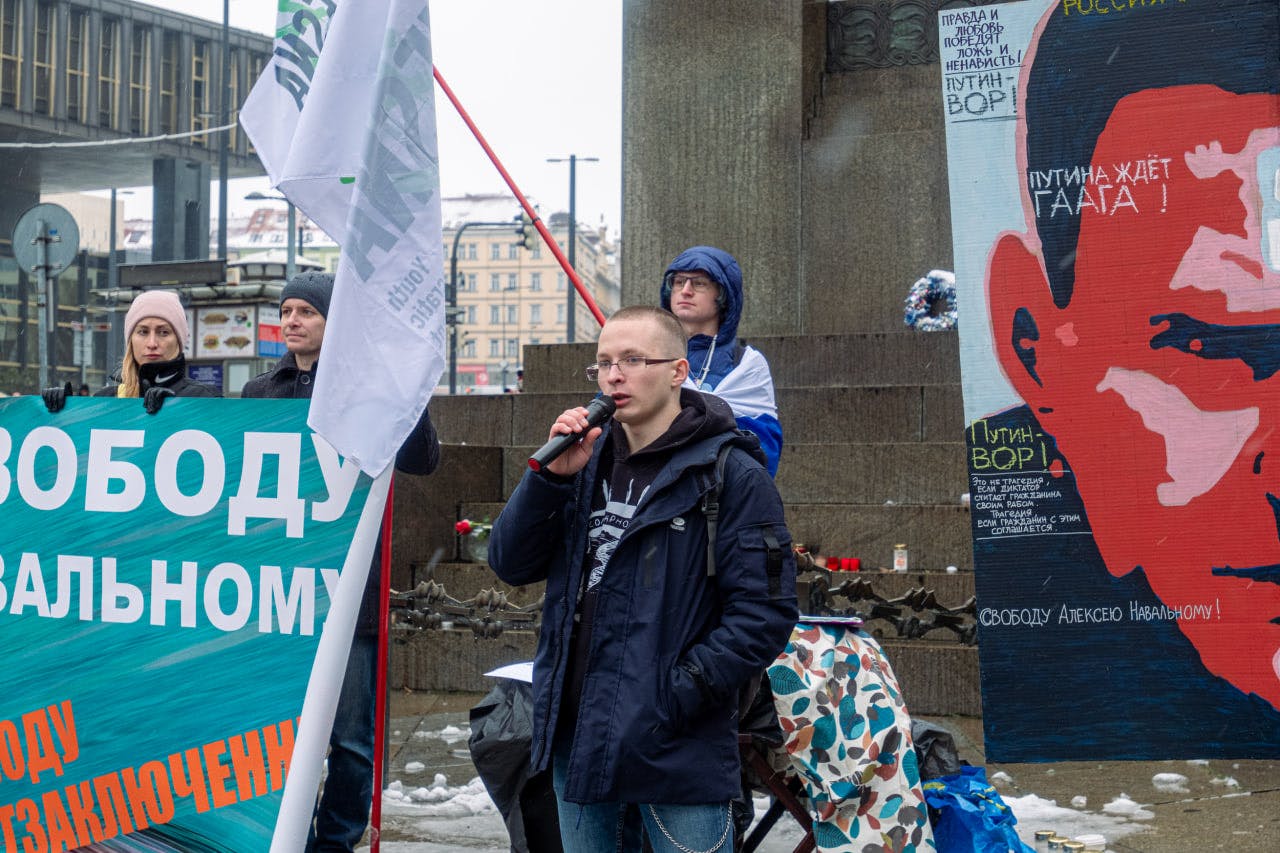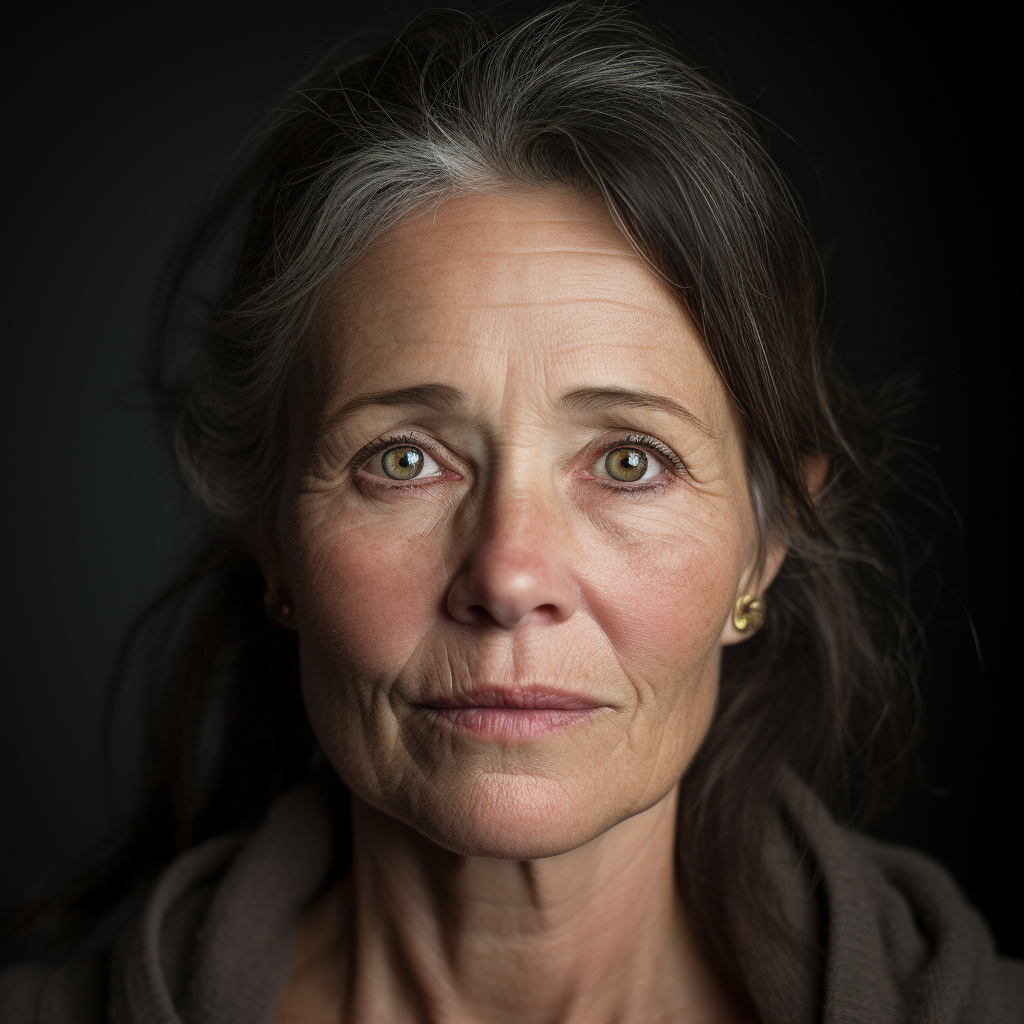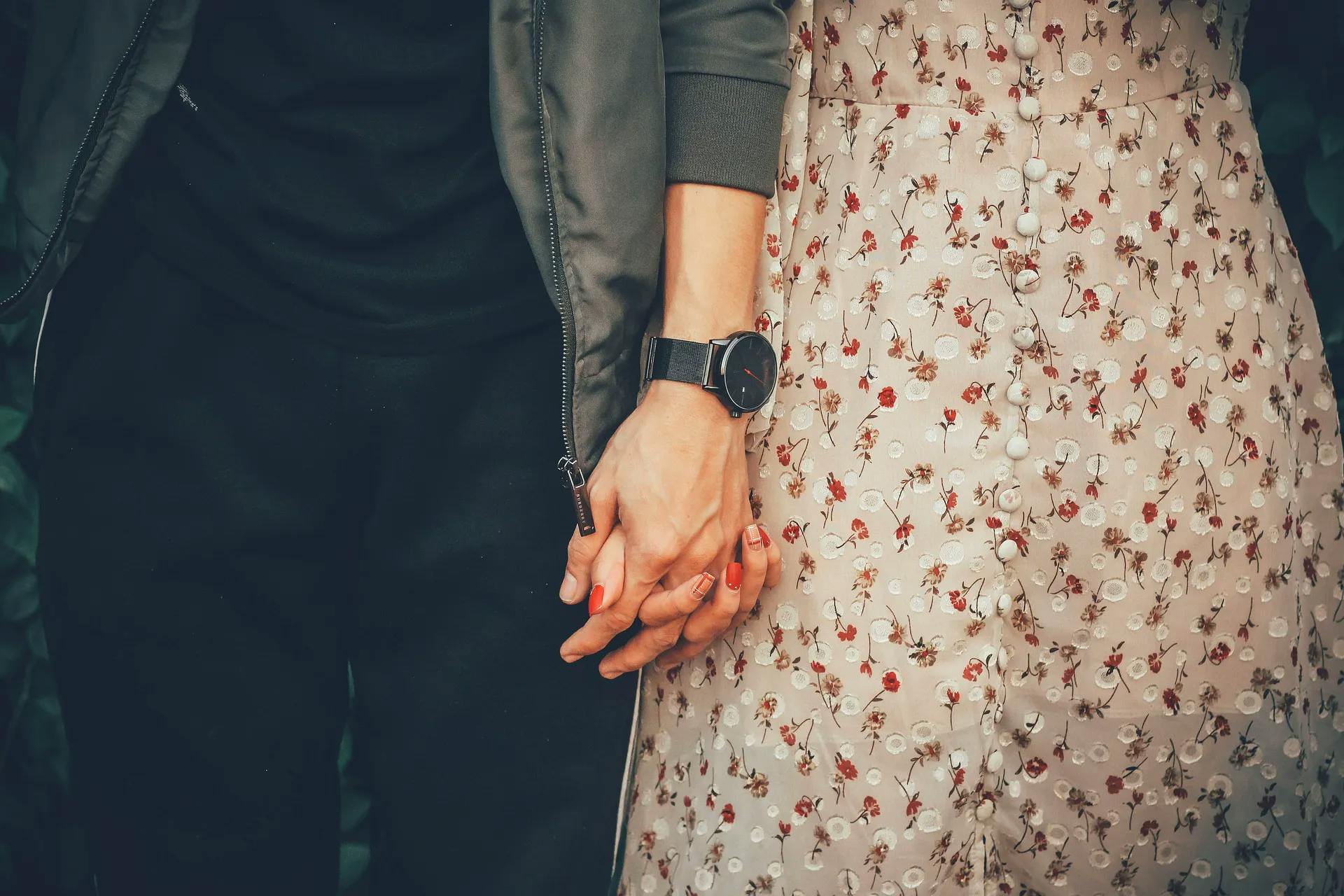Kysh (Andrei)
...Gebt nicht auf und verzweifelt nicht, tut, was ihr für richtig haltet. Russland wird auf jeden Fall frei sein.



My story is hardly unique. I don’t go to protests, I’m out of the public sphere, I’m not on social media. Nowhere is safe now and I have to take care of my children, they don’t have anyone but me. But this doesn’t mean that I am an accomplice of the regime and must carry responsibility for its actions, even by being deprived of privacy.
Yes, I would like that these kinds of stories—not [stories of] politicians martyred for their political views, not [of] opposition leaders risking their lives—stories like mine, stories of regular people, were heard. We do not agree [with the regime] and I would like to speak about this openly, but not on the territory of a country that throws people in police vans, beats and imprisons them. People here have no rights; no one will help if the machine of the state wants to crush you.
I am about 50 years old. I was born in the Far East. My brother and I were raised by my mother. My father passed away when he was still young, but I think it was from him, a Ukrainian by nationality, that I got this unwillingness to live within the system and intolerance of any dictatorship.
Then my brother passed away—he had two months left until demobilization when the conflict in Transnistria began [note: referring to the Transnistrian War between Moldova and Russian-backed separatists, 1990-1992] He ended up returning from the army in a zinc coffin. Five years ago, after several months of battling cancer, my mother passed away. Anyone who has experienced the treatment of the terminally ill in Russia will probably understand me. All the problems fall solely on the shoulders of relatives. I guess my life can’t be called easy but all this is so unimportant and shallow when compared to what is happening [now].
I’ve always wondered why nothing holds me here, why there is nothing in me that ties me to this country. Why, when I leave her borders, it’s as if it becomes easier to breathe. I occasionally try to figure out my relationship [with the country]—not with the government of the Russian Federation; everything is clear there—but with Russia, as the place where I was born, finished school, earned two higher degrees, and had three children. Why do I not feel at home here? Perhaps because home is a place where you feel safe, at ease, and comfortable. Life in Russia is a constant battle. Even for the freedom to have your own opinion, let alone the opportunity to express it.
For a long time I shut myself off from any negative information. I don’t even remember how many years it has been since I’ve watched TV. I especially avoided the news channels. And there are quite a lot of people like me. I understood this when, finally, after the war began and I saw the light and talked to people in my circle, I experienced a real shock. Because you yourself, through a breakdown and personal catastrophe, have woken up and realized the whole horror of what is happening, but everyone around you either pretends that nothing is happening or truly believes that Russia is protecting and saving someone. And it’s impossible to break through [to them]. And these are quite educated and smart people. It’s horrible. I just don’t know how to live with this.
The only person with whom I can talk openly and who definitely supports me and understands my [mental] state is my husband, who is a Ukrainian citizen who’s lived in the Czech Republic for over 20 years.
My daughter, a Czech university student, called me on the first day [of the war] and in a voice full of horror, told me that Russia had attacked Ukraine. That is, she didn’t say that there was a war, or a conflict, or whatever else you want to call it. I still can’t wrap my head around the catastrophic meaning of those words. Over the last two months, I lived through several mindstates: from suicidally depressed to [feeling] shame and wanting to give up my Russian citizenship. The deaths of innocent people, children, destroyed cities, broken destinies. How can this happen in the 21st century? How could we all let this happen?
For now, I’m in Russia, but I understand that staying here is suicidal. I disagree [with the war] and it’s getting harder to keep silent. My husband begs me not to express my opinions, he fears for my life. I have a small circle of contacts, mostly colleagues at work. Unfortunately, the only adequate reaction [I got] about what was happening when discussing the war was from a foreigner, an employee of my company, who shared how he and his friends evacuated Ukrainians to Europe, helped them with finding jobs and housing.
This deserves a lot of respect. I stopped talking about the war with Russians because I just can’t psychologically tolerate this indifference and denial of what is happening. Now I am reading and watching a lot in order to fully understand what is happening and so that I don’t fall back into that voluntary stasis in which most of my fellow citizens reside. Like Chulpan Khamatova [note: famous Russian actress] recently said in an interview: it is my fault that I haven’t watched TV for 20 years. If I had watched, I would have understood earlier where my country is headed. It is my fault too.
Last October I applied for a visa to reunite with my husband for myself and for my youngest son from my first marriage. And only after the start of the war did I see that the request had been approved by the Ministry of the Interior of the Czech Republic. But due to the restrictions on granting visas to Russians, it was clear that I was also affected and I didn’t get a visa.
I wouldn’t say that I’m okay. And I don’t associate that with the economic situation. Financially, this hasn’t affected me yet. The company where I work, things are not easy, it was also hit by sanctions, but at the moment this is not the worst thing. Morally, it’s not easy to survive your hopes being dashed.
My husband and I haven’t been able to reunite for almost nine years. In August of last year, we finally decided that that’s it, we’re done living via visits and holidays, got a marriage license in Odessa (because of COVID this turned out to be the only available and fast option), and gathered our documents, which wasn’t easy. [We] had to fly from Moscow to Yekaterinburg twice to file them, because our registration remained in the Far East.
My husband is constantly stressed; we don’t know when we might see each other again. Things aren't easy, but this is only our personal grief in comparison to what those poor people are going through, hiding in basements from bombs without water or food. This summer, I was in Odessa, Ukraine for the first time. I traveled with trepidation, but even before crossing the border, I was struck by the difference in attitude towards people. You leave Russia like a criminal and enemy of the people and enter Ukraine as a dear guest, even if you are Russian. Not once did I even see a sideways glance for speaking Russian. Calm, peaceful life; no marching Bandera-supporters on the streets. This photo was actually taken there by my husband. What is happening now to those warm-hearted workers at the agency who registered our marriage? It’s terrifying to think about. Cruise missiles and the sounds of sirens. It’s so surreal; I can’t believe this is really happening.
I only want one thing—to be near my beloved husband, who is having a very hard time with what is happening in Ukraine. His disabled mother is there and an aunt who takes care of her. He can’t go and see them. And we can’t get a visa in order to be together. It’s very hard, but we’re carrying on. He recently wrote a wonderful poem that describes familial relationships very well. I would like to quote it:
Mom, what are you talking about? What war?.. What clear blue skies?.. I'm right here under the falling bombs! And you are telling me about Nazis?!
Mom, the TV is telling you nonsense! Don't trust it! Try to think! How am I ever going to get through to you from my coffin?!
Again the alarm... We are getting bombed again! TRussians!!! Yes!!!.. Ridiculous? For what? They’re getting their revenge for our freedom! That's how Aleppo was bombed...
What? I am lying? I am saying bullshit?!. This is what the news anchor said? Mom, I will not call you again. There's no signal here.
Fortunately, this is not about us, we are united in our assessment of what is going on. But unfortunately, this doesn’t change anything for us personally. We are apart, and no one knows how long it will last.
I do think that it is unreasonable and unfair not to issue reunification visas. If denying all types of visas could stop the war, I would agree to never get one. Maybe my husband and I would have been able to find a place on Earth where we could spend the rest of our days. But, alas, such actions don’t help, they only multiply people’s suffering. My husband is a radiant person, an artist and poet-translator of Czech poetry, a Ukrainian. Why should he have to suffer because of the actions of one lunatic who thinks he is the Führer?
I am very grateful for the involvement of my husband's Czech acquaintances, who, after the war started, began to support him morally, calling to see if there was anything they could do to help. One of his Czech acquaintances found the email address of the Ministry of the Interior of the Czech Republic, to which I wrote a letter explaining our situation. And I even got a reply, which really surprised and cheered me, even though it wasn't comforting.
I guess there are different ways to help. I don't need material help yet, my needs are more of a moral nature. But now I wonder who I could thank. Right now for me it must be the independent media, which do a great job despite all the consequences: the closure of newspapers and channels, declaring them foreign agents. They still spread the truth so that those who are looking for it can get rid of the “zombification” via pro-government media. I am genuinely grateful to them, they opened my eyes.
Dieser Artikel wurde noch nicht ins Deutsche übersetzt. Wir suchen nach Freiwilligen, die uns dabei helfen können.
...Gebt nicht auf und verzweifelt nicht, tut, was ihr für richtig haltet. Russland wird auf jeden Fall frei sein.

...No one could ever imagine that literally tomorrow you would have to turn your life around 180 degrees and leave for a foreign country.

Short biography of the freedom that never happened.

Unsere Medienplattform würde ohne unser internationales Freiwilligenteam nicht existieren. Möchten Sie eine_r davon werden? Hier ist die Liste der derzeit offenen Stellen:
Gibt es eine andere Art wie Sie uns unterstützen möchten? Lassen Sie es uns wissen:
Wir berichten über die aktuellen Probleme Russlands und seiner Menschen, die sich gegen den Krieg und für die Demokratie einsetzen. Wir bemühen uns, unsere Inhalte für das europäische Publikum so zugänglich wie möglich zu machen.
Möchten Sie an den Inhalten von Russen gegen den Krieg mitwirken?
Wir wollen die Menschen aus Russland, die für Frieden und Demokratie stehen, gehört werden lassen. Wir veröffentlichen ihre Geschichten und interviewen sie im Projekt Fragen Sie einen Russen.
Sind Sie eine Person aus Russland oder kennen Sie jemanden, der seine Geschichte erzählen möchte? Bitte kontaktieren Sie uns. Ihre Erfahrungen werden den Menschen helfen zu verstehen, wie Russland funktioniert.
Wir können Ihre Erfahrungen anonym veröffentlichen.
Unser Projekt wird von internationalen Freiwilligen betrieben - kein einziges Mitglied des Teams wird in jeglicher Weise bezahlt. Das Projekt hat jedoch laufende Kosten: Hosting, Domains, Abonnements für kostenpflichtige Online-Dienste (wie Midjourney oder Fillout.com) und Werbung.




Russland hat den Krieg gegen die Ukraine angefangen. Dieser Krieg dauert schon seit 2014 an. Er hat sich seit 24. Februar 2022 nur noch verschärft. Millionen von Ukrainern leiden. Die Schuldigen müssen für ihre Verbrechen zur Rechenschaft gezogen werden.
Das russische Regime versucht, die liberalen Stimmen zum Schweigen zu bringen. Es gibt russische Menschen, die gegen den Krieg sind - und das russische Regime versucht alles, um sie zum Schweigen zu bringen. Wir wollen das verhindern und ihren Stimmen Gehör verschaffen.
**Die russischen liberalen Initiativen sind für die europäische Öffentlichkeit bisweilen schwer zu verstehen. Der rechtliche, soziale und historische Kontext in Russland ist nicht immer klar. Wir wollen Informationen austauschen, Brücken bauen und das liberale Russland mit dem Westen verbinden.
Wir glauben an den Dialog, nicht an die Isolation. Die oppositionellen Kräfte in Russland werden ohne die Unterstützung der demokratischen Welt nichts verändern können. Wir glauben auch, dass der Dialog in beide Richtungen gehen sollte.
Die Wahl liegt bei Ihnen. Wir verstehen die Wut über die Verbrechen Russlands. Es liegt an Ihnen, ob Sie auf das russische Volk hören wollen, das sich dagegen wehrt.